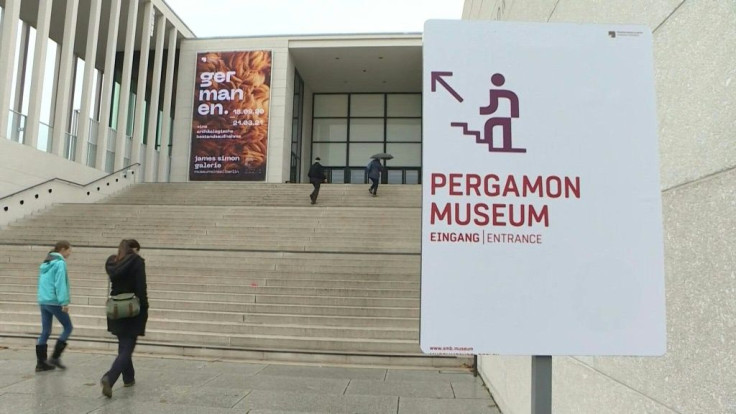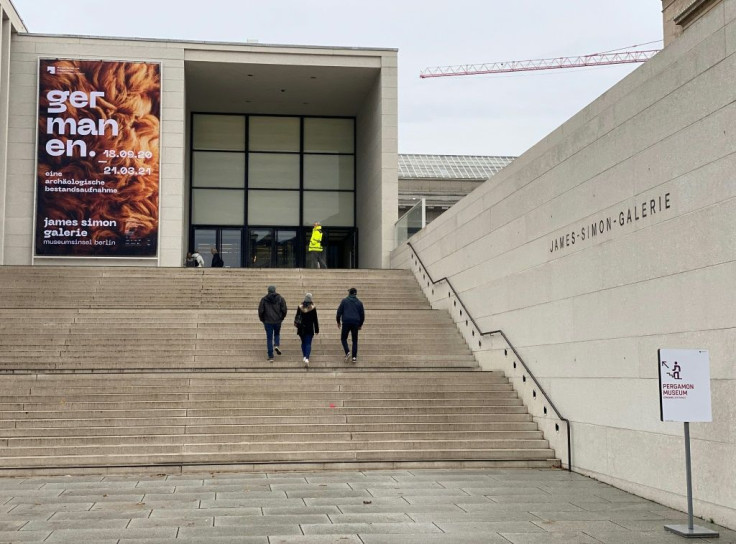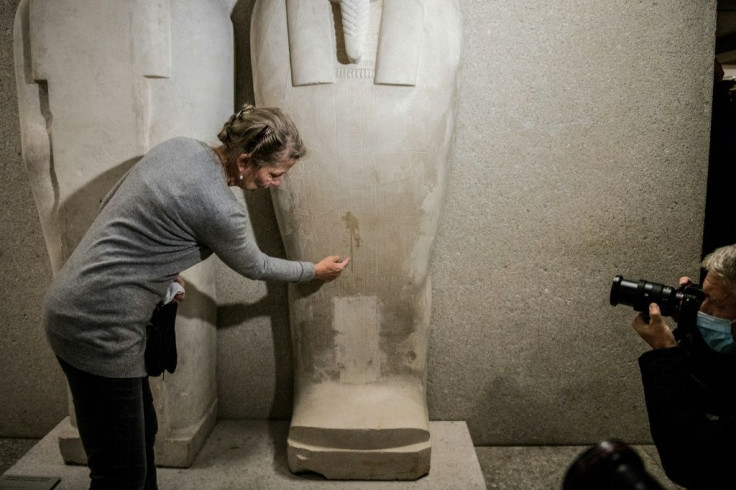Mysterious Vandal Attacks At Berlin Museums
Vandals have damaged dozens of artworks and artifacts at some of Berlin's most renowned museums, police said Wednesday, in a stunning attack kept quiet by authorities for more than two weeks.
Egyptian stone sculptures and sarcophagi as well as the frames of valuable 19th-century paintings at three institutions on the German capital's UNESCO-listed Museum Island were among more than 60 objects sprayed with an "oily liquid", leaving visible stains, Christina Haak, deputy director of Berlin's state museums, told reporters.
National media, which had earlier referred to around 70 damaged objects, called it "one of the biggest attacks on art and antiquities in German post-war history".

The state criminal investigation office (LKA) said it has opened an investigation over "property damage to artworks and artifacts on display".
Police believe the vandalism occurred on October 3, German Unity Day, during opening hours at the Pergamon Museum, Neues Museum and Alte Nationalgalerie.
A museum staff member reported the damage to her superiors that day, a national holiday, and the LKA was informed two days later.
LKA criminal division chief Carsten Pfohl told a news conference that the case was not made public initially to protect the investigation and out of "consideration" for the owners of works on loan.

He said there had been about 3,000 people visiting the museums that day and initial viewing of security camera footage had not turned up any suspects.
German Culture Minister Monika Gruetters expressed shock at the vandalism.
"Beyond the pure damage to property, such attacks demonstrate a deep contempt for artworks and culture achievements as a whole," she said, ordering a security review at the museums.

The director of the Egyptian collection, Friederike Seyfried, said the restoration work would be "extensive" and complex because the colourless oily liquid stained many different kinds of materials.
"You can't just wipe off oil," she said, calling the attack a "painful experience which we weren't expecting".
She said a full inventory of the museums' collections had been taken but that the total damage could only be estimated when the restoration work was complete.
Investigators said they were in the dark about a possible motive.
A joint article by the Die Zeit weekly and public broadcaster Deutschlandfunk, which first reported the incident late Tuesday, noted that Attila Hildmann, an activist who has railed against government measures to contain the coronavirus, had in August and September spread outlandish conspiracy theories about Museum Island.
Using his Telegram channel, Hildmann claimed the Pergamon Museum, closed for part of the summer due to the pandemic, held the "throne of Satan".
He said the institution was the centre of a "global satanist and corona criminal scene" where "they sacrifice humans at night and abuse children", in an echo of the international QAnon conspiracy movement.
Pfohl of the LKA said that the police would "not take part in such speculation" about a possible link to Hildmann and that the investigation was pursuing "all leads".
Berlin newspaper Tagesspiegel said that museum visitors who had booked tickets for October 3 had been contacted by police to ask for help with the investigation.
It attracts around three million visitors each year and is undergoing a major renovation and expansion.
© Copyright AFP 2024. All rights reserved.





















